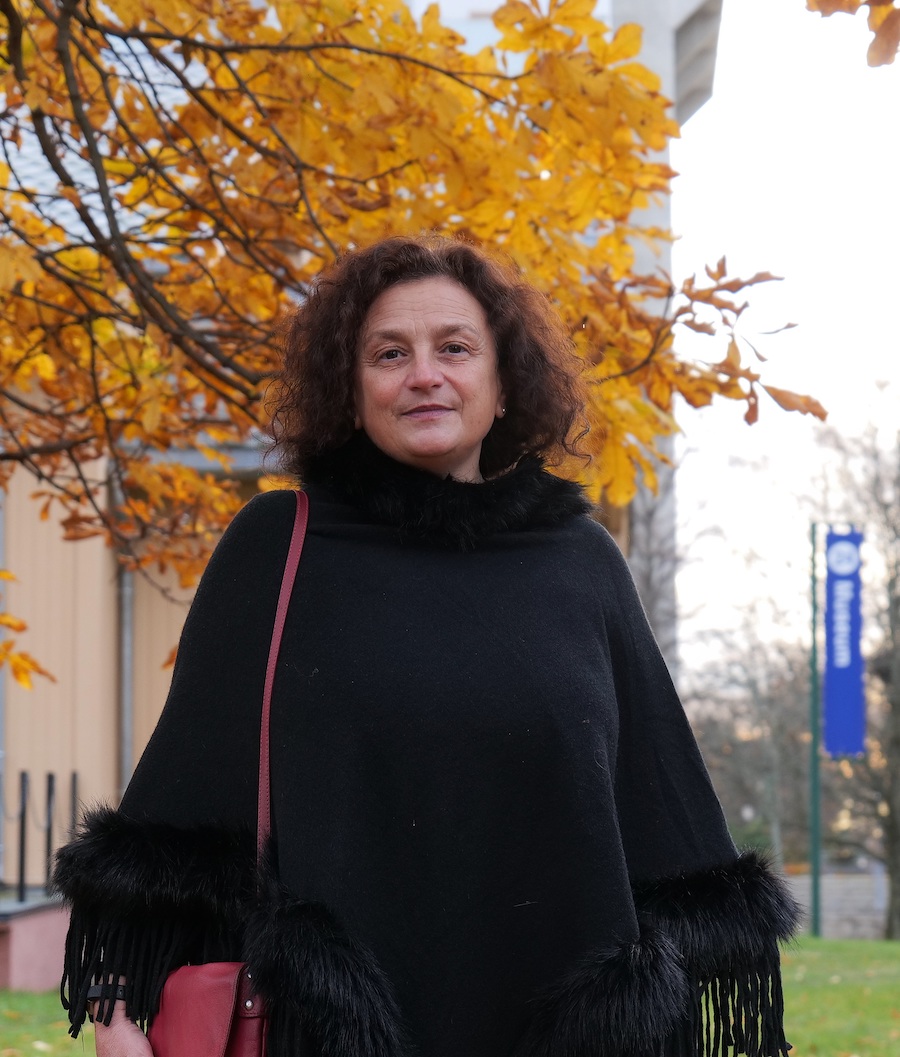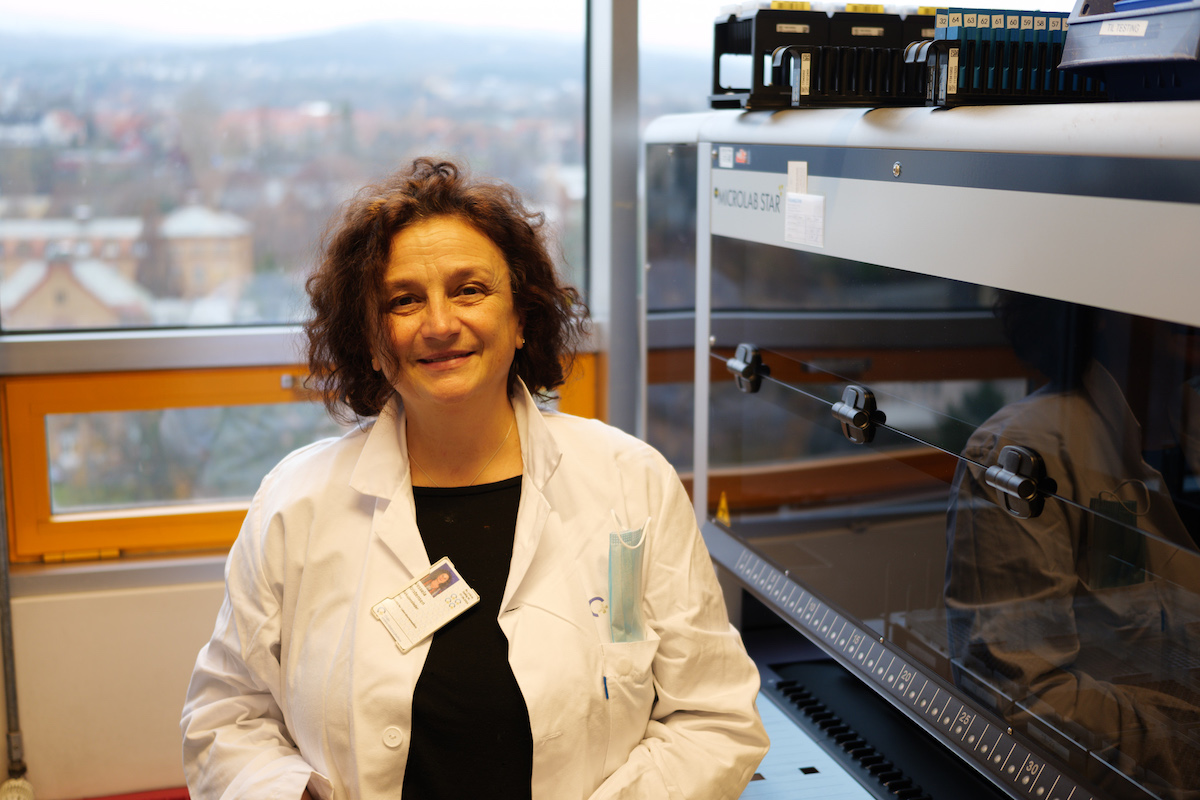Inside the head of a researcher: Cancer is a genetic disease

(click to enlarge)
Last autumn Vessela Kristensen acceded the position of head of Division of Research and Development and Head of research at the Department of Medical Genetics, Clinic for Laboratory medicine, OUS.
With eagerness and ambition, she has already taken hold of what will be the main focus the next years.
- We want to make the good work within the field of medical genetics more visible and cooperate tighter across all professional environments within the hospital so that we together improve the service we offer our patients with cancer and other diseases.
Despite hard discipline, she talks about the importance of being able to laugh throughout difficulties and tenure. – I am a bit of a “hedonist”. It is important for me to achieve results through happiness and pleasure. It has to be fun! So I understand that it can be difficult for those who do not know me to know how serious I am about things through all these laughs, she says and smiles brightly.
Born and raised surrounded by freedom and love in a big family in the capital of Bulgaria, she nevertheless got the message that that one has to “become something” and give back to society. And when she was accepted to study medicine and science, she would of course say yes to science.
Building up the cancer research environment
In 1996, she pursued her PhD at the Institute of Public Health and the Faculty of Medicine in Prague. After a postdoc-period at the Karolinska institute she moved to Norway to work as a researcher at the Institute of Cancer Research at the Oslo University Hospital, where she still has a number of collaborations. 10 years later, in 2006 she accepted professorship at the Institute for clinical medicine, campus Ahus. Here she started the work of building the cancer research environment together with her clinical collaborators. – It was important for me to see that the researcher groups are viable before I accepted anything new. When the Department of Medical Genetics announced the position of a Head of Division spring 2019, I saw it as a great opportunity for me to further develop as a leader and researcher. Simultaneously, I was able to stimulate my extended interest for other genetic diseases in the context of cancer, which remains the main topic, she says.
Tighter collaboration within OUS
With strong confidence in her own leader skills, and great support from the department leader Dag Undlien, she believes she will be able to contribute to create a change within the field. – Many of our groups are active participants in different centers of excellence, convergence milieu and K.G. Jebsen centers. My ambition is to expand the collaborations with other departments within the clinic, across the clinics at OUS and towards other Institutes at the Faculty of Medicine and other big centers. Additionally, I want to use my large international network in these projects so that our work contributes to larger developments in the world. It is crucial for that OUS remains a leading university hospital in a national and international context.
The implementation of research results in diagnostic activity

Undlien says that medical genetics is a subject at the cutting edge of medicine and technological development and good research is crucial to keep the diagnostic portfolio up-to-date. “The research in the department contributes to the faster implementation of research results in our diagnostic activity, and it is crucial to secure this so that the department can continue to offer service that is “state of the art” to our patient groups and requisitioners. He is happy that Kristensen accepted to be a part of the team. – Vessela is an amazing researcher and with her large and contagious engagement and enthusiasm, we are sure that she is the best we could wish for to lift the Department’s research to become better with the years that are coming”, he says.
Opens the door for research interested
Kristensen, who has been a guest researcher at the NCI, NIH and at Princeton University finds it important that whoever has the skills and interest in working with research should have the opportunity to do so. – My passionate cause is to elevate the importance of science and the status of being a researcher. Therefore, I wish to contribute to both young researcher in temporary positions, and established researchers who struggle to balance between administration, clinical work and research. Research is important and necessary work that we must be allowed to prioritize in a hectic working day.
Kristensen also sees the necessity to communicate research results clearer to both clinics and society. The use of NGS (next generation sequencing) in diagnostics will contribute to a whole new classification of genetic diseases, including cancer. Classification based on this technology will most likely redefine major disease classes and will uncover more unknown genetic variations. The use of Artificial Intelligence and machine learning to find the importance of these variations will also be an important investment in the future.
-There is no doubt that we need to have a debate about geneticists and their role in both the medical field and society This will be one of our most important investments in the future, to bring the importance of genetics in research and knowledge-based clinical practice, she concludes.
Links:
Home page of Vessela Kristensen's "Cancer Genome Variation" research group
Vessela Kristensen's publications
Department of Medical Genetics
Division of Laboratory Medicine
Some previous news articles about Vessela:
Being a project coordinator means achieving recognition from your peers (RESCUER project)
Computer modeling as a new way to improve breast cancer treatment (RESCUER project)
Vessela Kristensen appointed Head of Research at the Department of Medical Genetics
King Olav V´s Cancer Research Prize for 2018 to Vessela Kristensen
Vessela N. Kristensen's research group presented by the Norwegian Cancer Society
Dr. Ragnar Mørk legacy prize 2012 to Vessela Kristensen
